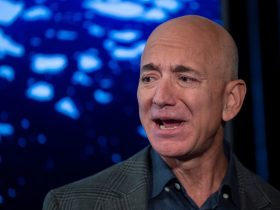Consumers spent nearly $400 billion on electric cars worldwide in 2022, and the U.S. is expected to add 1 million new EVs to its roads this year. From 2023 to 2027, automotive companies have committed $616 billion in total investments in EVs, according to consulting firm AlixPartners.
And yet, electric vehicles are piling up at dealership lots.
EV and internal combustion engine (ICE) inventory started the year off at about 52 days’ supply, according to Cox Automotive. Days’ supply is a way of measuring how many vehicles a dealer has on the lot. In the case of a 52 days’ supply, if automakers were to stop producing cars today, dealers would be able to keep selling cars for about that number of days before running out. Since January, EV days’ supply has skyrocketed while ICE supplies have hovered between 52 and 58 days. EV supply at the start of October was 97 days, down from the peak inventory of around 111 days during early July.
In August 2023, it took about twice as long to sell an EV in the U.S. as it did the previous January. Meanwhile, gas-burning vehicles were still selling briskly. Slightly more than half of consumers do say that EVs are the future and will eventually replace combustion engines, but less than a third of dealers hold that view.
EV leader Tesla has slashed prices dramatically, sales at some electric vehicle startups, such as Lucid, have disappointed, and companies like Ford Motor have ramped up hybrid production as demand for their EVs has leveled off. Insiders cite a number of factors: high pricing, concerns over charging and restrictions on subsidies being high on the list.
“There’s concern about public-charging infrastructure, even though most of the charging you’ll be doing will be at home,” said Jeff Aiosa, who owns Mercedes-Benz of New London, Connecticut. “There’s still concern about those long trips.”
And many, including Aiosa, say the shift toward EVs is, over the long term, inexorable.
Watch the video to learn more.
Read the full article here









Leave a Reply